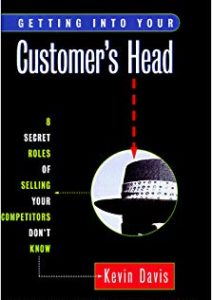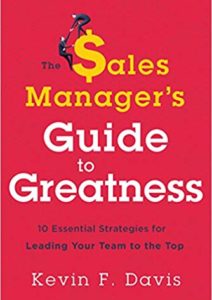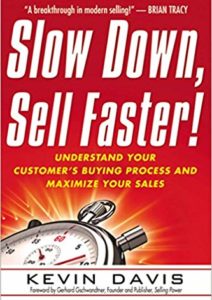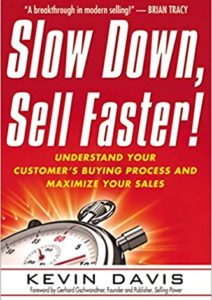When we think of an effective sales manager we often think of someone who manages a sales team that consistently hits the sales goals and objectives set by their company. But success is more than a number. Here are six things that the best sales managers do differently. Things that you can implement to create an elite, high-performance sales team.
1. Drive Rep Accountability for Breakthrough Sales Performance
It is not possible to hold salespeople fully accountable unless there is a clear description of what exactly sales excellence should look like. The mistake that many sales managers make is to focus on sales numbers, which are lagging indicators.
What the best sales managers do is clearly define the skills, knowledge and activities that comprise the input side of the sales performance equation. When you are clear about what salespeople need to achieve, you can communicate more specifically about what each needs to do differently to improve.
2. Hire Smarter
The fundamental dilemma that all sales managers face is that the best coaching in the world is not going to rescue someone who is ill-suited for the job. When making a hiring decision, the best sales managers evaluate not just the skills and wills of likely candidates but their cultural fit and their coachability. Why? While it’s true that some sales reps are naturals and likely will succeed in almost all situations, those self-driven top performers are more the exception than the rule. Most reps require sales coaching to attain top skills and peak performance levels.
3. Be more strategic about how to apply their time
When it comes to coaching, most sales managers have natural instincts to either rescue the worst players (because obviously they need the most help) or gravitate to the best players (because they will likely have the biggest, most exciting deal opportunities).
If either of these sounds like you, the results of a study reported in the Harvard Business Review might come as a surprise. “In research involving thousands of reps, we found that coaching—even world-class coaching—has a marginal impact on either the weakest or the strongest performers in the sales organization.”
Your biggest payoff from sales coaching will come from working with the people you might think of as your “B” players. Your mindset needs to be focusing your one-on-one sales coaching time on the people with the biggest potential for improvement, not those with the biggest problems or the ones with the biggest deals.
4. Commit to consistent coaching
Think about the best manager or coach you’ve had, whether in or out of sales. The answer that occurs to most people is someone who was truly committed to their success. People don’t remember a manager or coach so much for the step-by-step coaching process that person used (though they probably had one). They remember coaches more for how those managers interacted and communicated and the effort they put in to connecting with them as individuals.
5. Motivate the Demotivated
The vast majority of sales managers that I deal with think that as high as 75 percent of the performance issues on their team are caused by a rep’s bad attitude or “willingness problems”.
Deficiencies in will—a rep’s attitude and mental approach to the job—are much more difficult to solve, and this is perhaps one reason why they get ignored so often. Yet taking action is imperative. Just one salesperson with a bad attitude can bring a team’s performance down by up to 30 percent, no matter how good the rest of the group is. Poor behavior has a much stronger negative effect on a sales team than the positive effect of good behavior.
Dealing with this wide range of willingness problems takes finesse. You can’t send someone to a class to improve an attitude. You can’t force someone to be more motivated simply by telling them what to do or cheerleading from the sidelines.
The best sales managers think about what will motivate—or what has demotivated—the person. Focus on the difference between motivators that raise the natural level of motivation (providing incentives for people to improve and get better), and demotivators that rob people of their enthusiasm for the job. As a manager, you have to be able to distinguish between these two so you know whether your job is increasing motivators or trying to diminish the impact of demotivators.
6. Think and Act Like a Champion
One of the most frustrating aspects of sales management is that building a successful sales team takes a lot of time.
David Epstein, author of The Sports Gene, has devoted much of his career to studying the behavior of elite athletes and champions. Epstein discussed a pattern he noticed in how champions set their goals.
All of the champions he studied, said Epstein, have major goals they want to accomplish, such as winning a race or an Olympic medal. But on a daily basis they aren’t thinking about that end point. Rather, every day will be devoted to something very specific, such as “today in my workout, between mile three and four, I’m going to push hard.” In other words, these champions are really good at setting proximate (near-term) objectives that tell them what to do today. The best sales managers do the same.
Pipeliner CRM empowers sales managers to manage with precision.Get your free trial of Pipeliner CRM now.














Comments